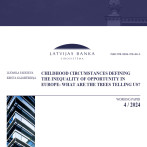Retail trade: uneven growth as a result of weak demand
The retail trade turnover (at constant prices; excluding seasonal effects) narrowed by 0.4% in May against April primarily on account of weakening demand for food and to a lesser degree also for non-food products. The sales of motor vehicles not included in retail trade turnover data also contracted somewhat in May. As a result, compared with the overall positive April indicator due to the effects from motor vehicle sales, a moderate sustained decline was again recorded in May.
Preliminary indicators for June suggest a positive change: the results of consumer and producer surveys published by the European Commission show certain growth, with consumer confidence higher by 2 points and trade confidence up by 5 points. Year-on-year, an increase in the budget revenue from consumption taxation was also recorded in June. Nonetheless, disposable income of households continued overall on a downward trend in the first half of 2010; hence the improved consumer confidence figured as the core driver of improvements in trade: consumers changed their behaviour from precautionary saving to larger spending. The growing expenditure vis-à-vis dropping or stagnating disposable income is neither a paradox nor a mistake: if households become aware of a sounder future perspective, they would increase their spending and put aside 5% of their monthly income instead of former 10% even in the situation of disposable income remaining constant.
A notable rise in the demand for durables (motor vehicles, furniture, lighting fixtures, building materials, etc.) since the beginning of the year suggests that households are spending the savings of previous periods as well. This is likely to be associated with an assumption about the prices of these durables having reached their lows and the time for making a larger purchase having set in on the backdrop of abating uncertainties related to the future. Nevertheless, domestic demand is likely to be weak for some time to come due to household spending exceeding savings and thus building up debt, persistently high unemployment rate and contracting income. Consequently, a rapid trade recovery is not to be expected in the near future.
Textual error
«… …»






